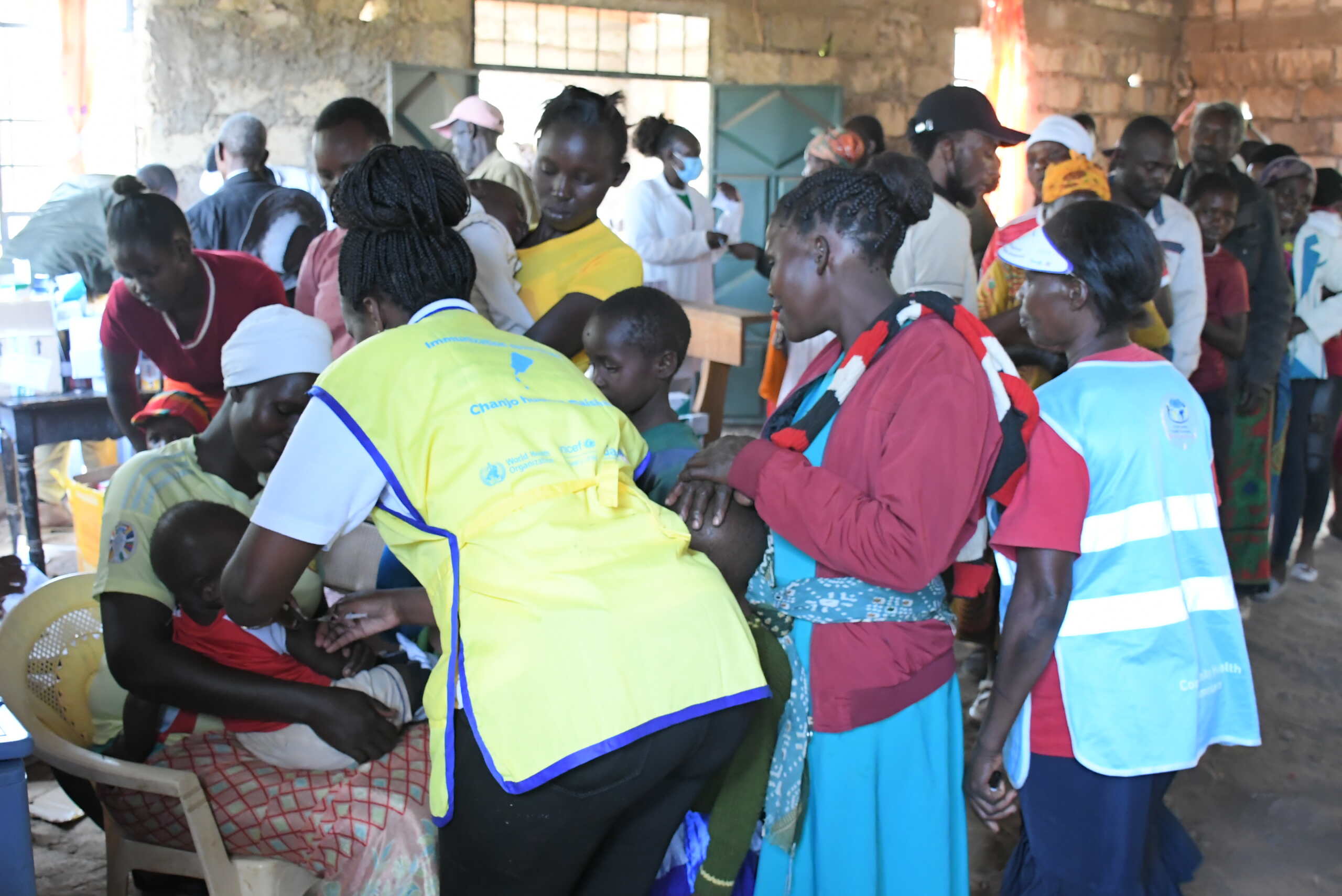COVID-19 has catastrophic effect on people with disabilities
Covid-19, Pacific, Stories | June 25, 2024
COVID-19 continues to rage throughout Asia and the Pacific, disproportionately impacting people with disabilities.
About one billion people around the world live with disabilities, more than half (690 million) live in Asia and the Pacific.
The existing challenges and barriers faced by many people with disabilities, who are often living in low income and developing countries, have been exacerbated during the COVID pandemic.
Research prepared by CBM Australia in 2020 found that people with disabilities were negatively impacted throughout COVID across key domains including: physical health; mental health and wellbeing; access to regular disability services and supports; employment and income; and food and education.
CBM Australia CEO Jane Edge said the COVID pandemic has had a catastrophic impact on people with disabilities.
“People with disabilities have lost their jobs disproportionately more than people without disabilities; they can’t get enough food to eat or access to health services — much less protect themselves from the virus.
“We must address the inequity and work alongside the world’s most vulnerable, who are being pushed even further to the margins.”
The impact of COVID-19 on South East Asia and the Pacific
At the same time, many countries throughout South East Asia and the Pacific have felt the brunt of the pandemic, including high infection and death rates compared to other parts of the world and an overwhelming strain on health systems and hospitals coupled with slow or interrupted vaccine rollouts.
The Philippines
The Philippines has one of the lowest vaccination rates in Asia. It has been particularly hard hit by the emergence of the highly transmissible Omicron strain, which began after the Christmas and New Year holiday period. The surge has caused increased demand for medications and has the potential to push hospitals to the limit.
More than 3.6 million cases have been confirmed, and more than 54,000 deaths recorded. The surge in cases has led to President Rodrigo Duterte extending the state of calamity in the Philippines until September 2022.
The troubled vaccine rollout has seen President Duterte threaten jail for those who choose not to get vaccinated. The Philippines had one of the world’s longest and strictest quarantine restrictions that caused its worst economic recession since the 1940s, resulting in record levels of unemployment and hunger.
Slow vaccine rollouts have proved a serious problem in countries such as Bangladesh, Indonesia and Nepal.
Bangladesh
In Bangladesh, only 38 per cent of the population was fully vaccinated as of February 2022. The eighth most populous country in the world has recorded more than 28,000 deaths and more than 1.8 million infections.
Devastatingly, COVID entered refugee camps. More than 30 Rohingya people in Bangladesh have died of COVID in the camps located in the southern district of Cox’s Bazar.
The vaccine rollout began in Rohingya refugee camps in August however, as one refugee told local media, it is difficult to adhere to social distancing and other preventative health measures in such an environment.
Indonesia
Indonesia is also experiencing a COVID crisis — having passed 144,000 deaths and with authorities fearing the true death toll could be higher.
More than 4.7 million COVID cases have been confirmed since the pandemic began and, as is the state elsewhere, case numbers and deaths have spiked since the emergence of the Omicron variant. Health systems are overwhelmed, the bed occupancy rate at hospitals in the capital reaching 63 per cent, up from 45 per cent in January.
The World Health Organisation says Indonesia’s hospital system needs isolation rooms, oxygen supplies, medical and personal protective equipment, as well as mobile field hospitals and body bags.
Less than 50 per cent of Indonesia’s population is fully vaccinated and the Ministry of Health has highlighted that vaccinations in rural areas are taking place far slower than in areas such as Jakarta and Bali.
Nepal
Nepal, home to 28 million people, has also experienced delays to its vaccine rollout due to export issues arising in India. Nepal has administered over 31 million vaccines, meaning only about 55 per cent of the population has received one dose.
Since the pandemic began, Nepal has recorded more than 973,000 infections and 11,000 COVID-related deaths.
Papua New Guinea
It is a similar story in Papua New Guinea (PNG) where just over 530,000 people, of eight million, have received a COVID vaccine. Assuming every person needs two doses, that’s about three per cent of the population fully vaccinated. PNG is averaging about 664 doses administered per day. At the current rate, it would take a further 2,644 days to administer enough doses for another ten per cent of the population.
Limited capacity for COVID testing, as well as inadequate hospital resources in remote and rural areas, have provided barriers for PNG to effectively navigate the crisis. More than 38,000 cases and 600 deaths have been recorded.
Fiji
Neighbouring Pacific nation Fiji passed PNG’s COVID death toll recently, with more than 800 Fijians having died of COVID, and hundreds of new cases continuing to be recorded each day.
The Omicron variant has had a significant impact on the island nation, creating a surge in both new cases and deaths.
Fiji’s Government has also spoken about the stress on the country’s largest hospital, the 500-bed Colonial War Memorial Hospital in capital Suva, the mortuary of which is full.
As we navigate this unprecedented global health crisis together the inequalities that already existed in our society have been further exposed.
CBM remains on the ground in some of the poorest parts of the world, working with local partners to support communities to help them to better face this crisis.
You can help! Make a donation today and support a broad range of initiatives to help people with disabilities and their families living in the world’s poorest places.
https://www.cbm.org.au/stories/covid-19-people-with-disabilities-south-east-asia-pacific
Related Stories

Coordinating inclusive health outreach in Meru County
For many households in Meru’s rural and remote areas, basic health services are physically...

Share your advocacy preferences with us
Thank you for helping us to advocate for the one billion people with disability globally. CBM Australia advocate across...

Advent 2025: Jesus’ way leads to fullness
The way of Jesus gives people freedom and empowers them to live out their God-given purpose. The last few weeks...
